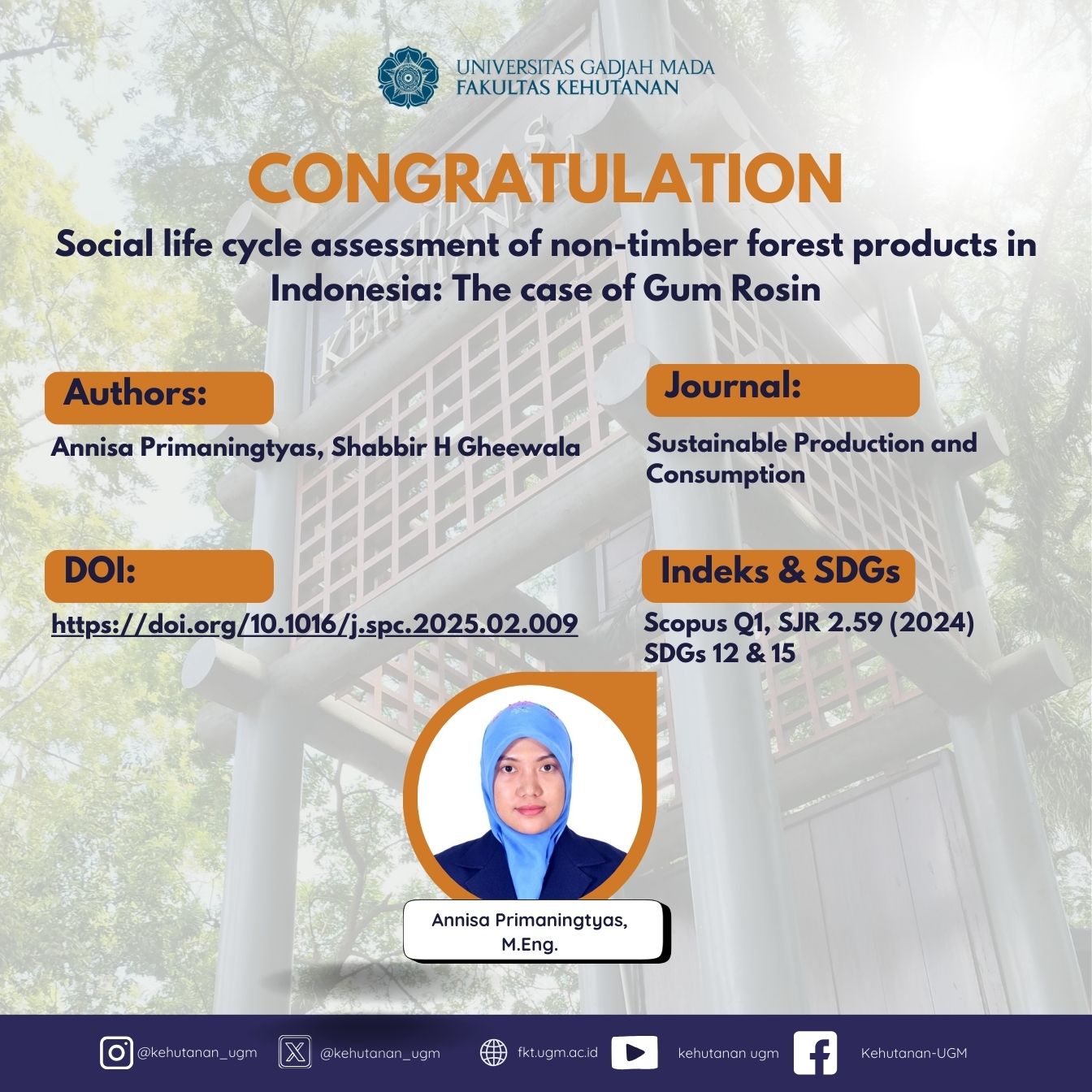
Abstract
Gum rosin, a distillation product of pine sap with turpentine as a co-product, is a significant non-timber forest product (NTFP) in Indonesia. This study evaluated the social sustainability of gum rosin production across four factories in Central Java during a three-year period of 2020–2022 through a Social Life Cycle Assessment (SLCA). The study focused on social performance and identifying social hotspots using the Subcategory Assessment Method (SAM) based on basic requirements. Data collection involved reviews of documents, reports, and records of the organization with triangulation interviews and surveys of other stakeholders to validate data in the inventory analysis. The results indicated that all factories met the basic requirements in the majority of subcategories for all stakeholder groups involved. Each stakeholder group had specific subcategories requiring improvement, such as “working hours,” “fair wages,” and “health and safety” for forestry workers; “access to material resources” for local communities; “promoting social responsibility” for value chain actors; and “transparency” for consumers. These areas were found to not meet basic standards and need specific improvements. These findings are intended to support the government, as the industry’s sole shareholder, in developing strategies for its future growth while recognizing the potential of pine sap to contribute to climate change mitigation and adaptation efforts. While this study focuses on industry activities, future research should expand its scope to include the broader social impacts of sustainable forest management more comprehensively.
SDGs:
SDG 12: Responsible Consumtion and Production
SDG 15: Life on Land
Link Dokumen:
Download
